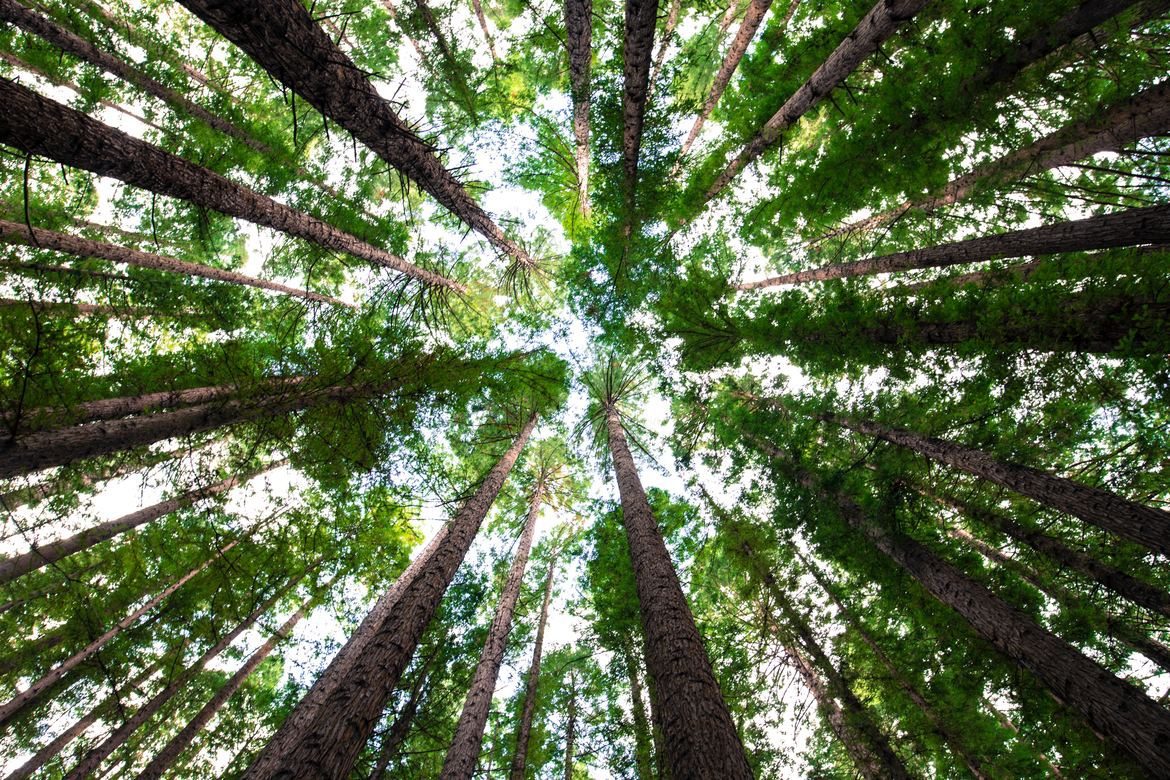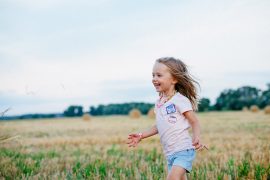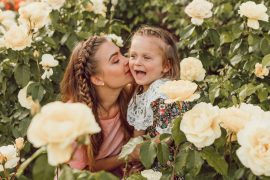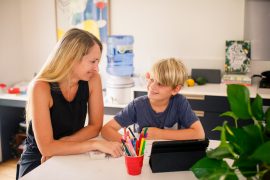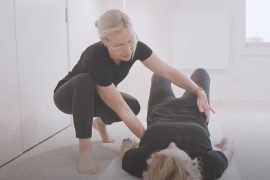By Sarah Moore
As I write this, the Amazon rainforest is ablaze. That’s a very big problem; there’s every chance that the fires could “accelerate global warming and cause lasting harm to a cradle of biodiversity.” Yet, as much as we hate to admit it, teaching children how to protect the earth and discussing things like the Amazon aren’t often at the forefront of our minds. In all practicality, we’re often busy … making lunch, managing our children’s bedtimes, living life.
I don’t write that judgmentally. I’m guilty of it too.
As part of conscious parenting, however, it’s imperative that we do teach kids about what’s happening on our planet. Conscious parenting and salvaging what we can of the earth aren’t mutually exclusive. We have a moral obligation to not only teach children how to be kind to other humans, but also to show them how to nurture the global home they share.
All this gentle and respectful parenting we’re striving for won’t mean a thing if our kids don’t have a planet on which they can live safely.
We shouldn’t just teach kids about the implications of the Amazon fires, mind you – rather, they need to know about all the myriad factors that play into the future of this “pale blue dot” we call home.
However, it feels a bit overwhelming to have that responsibility on our shoulders, doesn’t it?
It is overwhelming. I’m not minimising the enormity of the task. Fortunately, as individuals, we’re not supposed to carry heavy burdens alone – especially seemingly insurmountable ones like climate change. Positively altering our world is going to take work from every single one of us as a global community. What matters is that we’re doing our part.
As conscious parents, we can weave important messages about sustainable living into our everyday lives.
There’s always something we can do to protect the earth. Here are three ways that work well as we parent our children: teach them, show them, and lead them.
1. Teach children about sustainability by talking about it.
There are so many ways to weave this topic into your daily conversations. Although it’s wonderful to have sit-down discussions about the earth, it doesn’t need to be complicated or heavy-handed, particularly with children who are highly sensitive. Adapt your message to suit your child’s ability to process the information thoughtfully and without fear mongering. Starting small is great, particularly for small children. No child is too young to listen. It’s all about planting the proverbial seed. It will grow if you let it.
Awareness and understanding go a long way; they’re how kids establish their belief systems about what’s important.
Here are some simple and effective ways you can teach young children about protecting our planet:
- Tell your child why you’re turning off unnecessary lighting, water, or appliances in your home. You’re doing those things habitually; help your kids connect the dots. What you can say to your child: “I’m turning off the bedroom lights because no one’s in there. That’s how we save energy. Saving energy helps protect the earth and everyone who lives on it.”
- Recycle or compost more than you throw away; explain what you’re doing and why.
- Use colour-coded bins to make it fun and interesting for children who are learning what goes where.
- For older kids who have an understanding of time, you can talk about (and even visit) landfills. Research how long it takes various items to break down. A single plastic bag can take anywhere from 10–1000 years; some studies argue that they never fully decompose. What else can you research together?
- Teach young children through play. Do your toy cars ever stop for fuel? Ours do. When they pull up to our living room couch (which doubles as the gas/petrol station), they can choose between “clean chocolate and vanilla fuel” or “icky black garlic fuel that’s awful for the air.” (Nomenclature thanks to my child.) When we’re out and my child sees a car spewing black smoke, she knows it’s bad. She comments accordingly.
- If you can, use your legs instead of your car. Some of the best discussions my child and I have ever had about protecting the earth were while we were on long walks together. Particularly for older kids, let them know why walking or biking are better than riding public transportation; why public transportation is better than driving alone. It’s easy to weave conversations about the earth into conversation while you’re out in nature. What you can say to your child: “We’re walking to the library today so we don’t use the fuel that’s in our car. Saving fuel helps sustain the planet by reducing fumes and protecting Earth’s natural resources.” Talking goes a long way for kids. If they don’t hear important messages from you, what would they know to look for (or to avoid) in society as they grow up?

